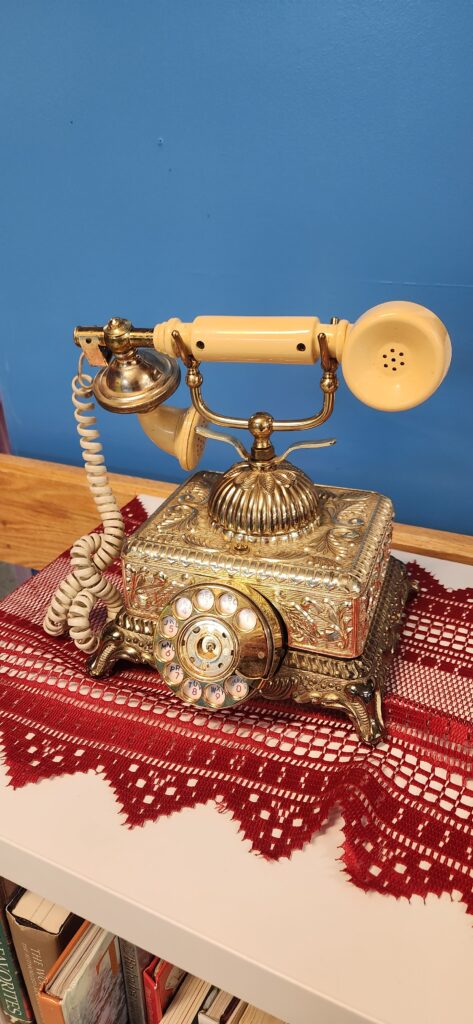We have a lovely lady, who we will call Suzie, who would frequently get together with friends after work or who would have evening chats on the telephone during her younger years. This memory often comes back to her around mid-afternoon, and she is looking to make those connections again and asking to make a phone call. Staff have quickly picked up on the idea that Suzie is looking for a connection with this memory.
We have an old rotary phone that the staff assist her to “use” to pretend to call her friend, Jean who resides in London, England. Suzie chooses to sit in the common area where many other residents can be seen while she converses with her good friend Jean. One of the staff sits behind Suzie and acts as the voice of her friend. The staff go on and on during the conversation about where she has been travelling, and what she has been doing lately. Suzie always asks when her friend will be coming to visit.

Typically, ‘Jean’ responses to Suzie saying she hopes to make it to Ottawa in the near future, or has a plane ticket booked for a few months in the future. Suzie becomes very excited to hear this information asking for her friend’s itinerary to ensure her schedule remains free so Suzie can see her as much as possible during her time here. Suzie makes note of it on a piece of paper so she can reference it for the future.
Suzie likes to know how long Jean will visit, what kind of wine she should purchase for her arrival, and what types of things Jean would like to do while she is in Ottawa. There have been occasions when staff have even gotten the opportunity to speak with Jean which really enriches the whole experience.
This interaction has so many benefits for our Suzie and has been an ongoing routine when she is becoming upset in the afternoons. For the next hour or so Suzie will tell all the staff how great it was that she got to speak with Jean and that she will be coming to Ottawa very soon.
NOTE: The staff choose to use a therapeutic approach called validation which allows which you to be fully present, compassionate, and affirming of a person, regardless of the reality of the situation. Validating a person’s experience addresses their emotional needs without the use of logic, reason or judgement. It is a practical way that helps reduce stress, enhance dignity and increase happiness. Validation is built on an empathetic attitude and a holistic view of individuals. Staff here have determined validating this phone call is much more beneficial than harmful to Suzie.
Becky Helmer, Supervisor of Recreation Programming
The Glebe Centre, Ottawa
- Validation Training Institute. Accessed at: https:// vfvalidation.org/what-is-validation/

